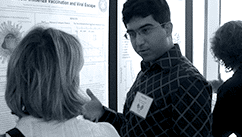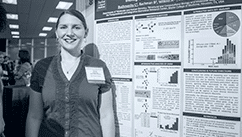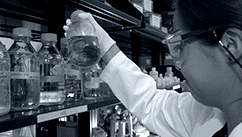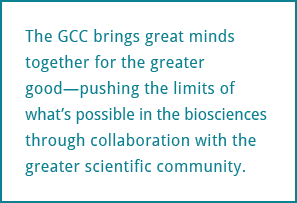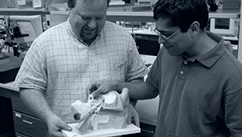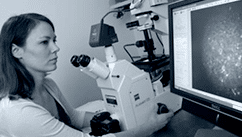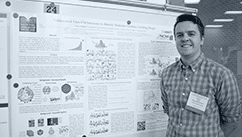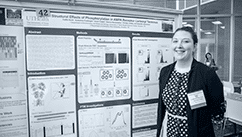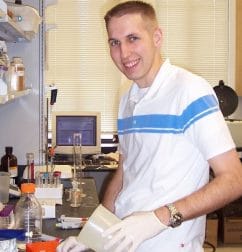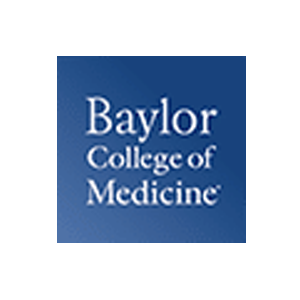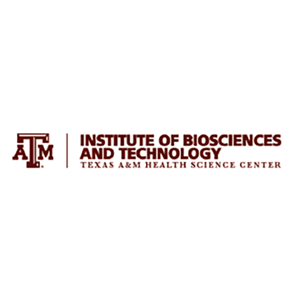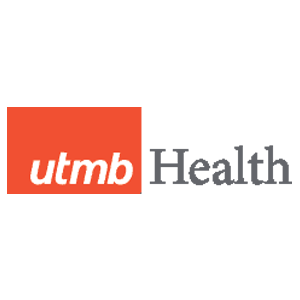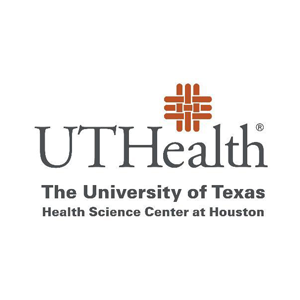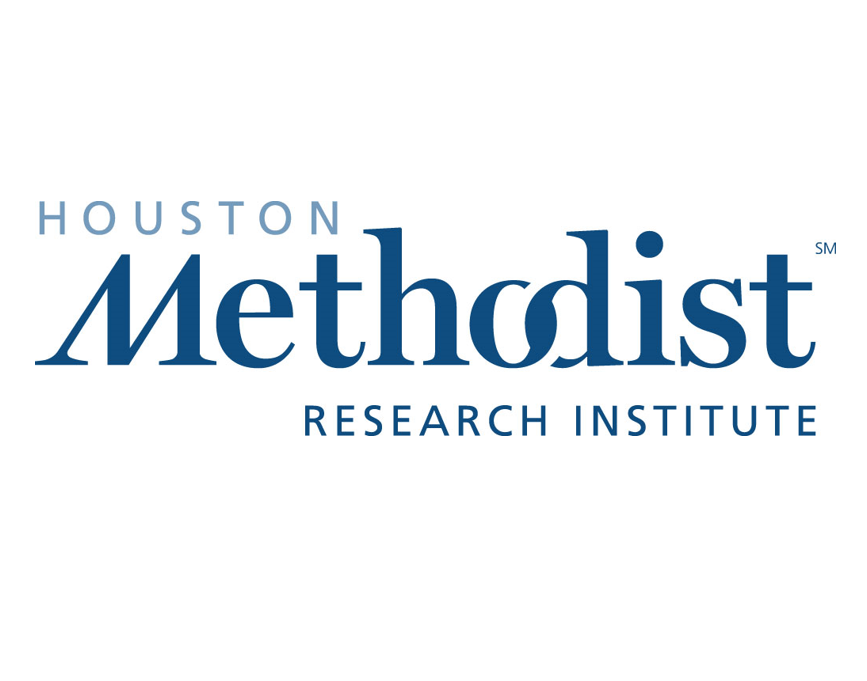
Training Interdisciplinary Pharmacology Scientists (TIPS)
Funded by the National Institutes of Health grant T32 GM139801 to The University of Texas Health Science Center at Houston.
Program Director:
Carmen Dessauer, PhD, Professor
Integrative Biology and Pharmacology
The University of Texas Health Science Center at Houston
Program Co-Director:
Timothy Palzkill, PhD, Professor and Chair
Pharmacology and Chemical Biology
Baylor College of Medicine
Program Administrator:
Melissa Glueck, Director of the Keck Center
Gulf Coast Consortia
The mission of the Training Interdisciplinary Pharmacology Scientists (TIPS) program is to provide interdisciplinary training in pharmacological sciences to PhD students from a variety of backgrounds to ultimately decrease the time and expense currently required to bring safe, efficacious drugs to clinical application. This training will emphasize the science and technology that underlie drug discovery research and drug development to prepare graduates for basic and translational research careers in academia, the private sector including pharmaceutical and biotechnology industries, and government regulatory agencies.
TIPS trainees will have a primary and a secondary mentor representing different and interdisciplinary perspectives in the complex cores areas of drug discovery (target discovery and validation, screening, computation, medicinal chemistry, structural biology, -omics), and will develop a project that requires development of advanced expertise in two or more of these core areas. This cross-training, along with required courses in therapeutics and drug development, career development activities, and industry/biotech shadowships, will develop and nurture a diverse cohort of pharmacological sciences trainees in the operational, technical, and professional skills that will enable them to succeed in their chosen careers.
The multi-institutional TIPS program will leverage the tremendous collaborative environment, research expertise and training experience of 30 interactive faculty from three participating institutions focused on graduate biomedical science education: The University of Texas Health Science Center at Houston, Baylor College of Medicine, and Rice University.
Trainees will benefit not only from traditional experiences, knowledge, and established approaches but also from exposure to recent advances in and systems biology approaches to target validation, drug specificity, safety, human heterogeneity, human trial design, data capture, and interpretation. TIPS is designed to immerse trainees in an array of environments in which they experience the inventiveness and laboratory training historically found in academia, the drug development expertise of biotech and pharma, and regulatory challenges and initiatives of agencies such as the FDA. Such synergy in graduate training should accelerate academic research relevant to drug discovery, industrial productiveness, individual career advancement, and ultimately, public health benefits.
Trainee Eligibility
PhD students from The University of Texas Health Science Center at Houston, Baylor College of Medicine, and Rice University are eligible to apply.
- PhD students must be US citizens or Permanent Residents with current Green Cards.
- Students may apply after joining a lab near the beginning of their second or third year of graduate school. Students starting their second year will be prioritized.
- Students must select a primary or secondary mentor from the TIPS Training Faculty, or a faculty member may submit a request to join the TIPS Training Faculty when their student is applying to TIPS in a current round of applications.
Call for PhD student applications open
September 9: Due date for applications and all required materials, including letters of recommendation and unofficial transcripts
October 9, in the afternoon: In-person interviews for selected applicants; both mentors are expected to attend
November 1: One-year fellowships will begin. PLEASE NOTE THAT RE-APPOINTMENT TO A SECOND YEAR WILL BE DEPENDENT ON NIH FUNDING THE TIPS RENEWAL APPLICATION.
Faculty from UTHealth Houston, Baylor College of Medicine, or Rice University, who are not currently affiliated with TIPS can request to join the faculty if they are supporting a candidate in the current call for applications. This applies to primary mentors (the student’s lab PI) and secondary mentors. Mentors must be tenure-track or tenured. To apply, submit an updated 5-page NIH Biosketch including funding, as well as a brief statement of your research interests as they relate to interdisciplinary pharmacology, to the Program administrator Melissa Glueck glueck@rice.edu by the application due date.
Please see the TIPS Application Information section below for more details.
Current Trainees
TIPS_T32GM139801 Meet the Trainees_Oct 2024 to see the list of our currently appointed TIPS trainees.
This website was last updated on 6/24/2025.
IMPORTANT: Please review Trainee Eligibility Criteria above prior to completing an application.
- Application deadline: September 8, 2025.
- Applicant interviews: October 9, 2025, in-person
- Fellowship start date: November 1, 2025. PLEASE NOTE THAT RE-APPOINTMENT TO A SECOND YEAR WILL BE DEPENDENT ON NIH FUNDING THE TIPS RENEWAL APPLICATION.
To apply to join the TIPS faculty: faculty from UTHealth Houston, Baylor College of Medicine, or Rice University, who are not currently affiliated with TIPS can request to join the faculty if they are supporting a candidate in the current call for applications. This applies to primary mentors (the student’s lab PI) and secondary mentors. Both mentors must be tenure-track or tenured. To apply, submit an updated 5-page NIH Biosketch including current funding, as well as a brief statement of your research interests as they relate to interdisciplinary pharmacology, to the Program administrator, Melissa Glueck glueck@rice.edu, by the application due date.
TIPS APPLICATION INSTRUCTIONS
All application materials, including recommendations and transcripts, must be received on or before the deadline.
Applicants, be sure to inform your mentors and other recommenders that their recommendations are also due by the deadline above.
Components of the application:
From others:
1. Mentor recommendation letters from primary and secondary mentors, emailed directly to Melissa Glueck glueck@rice.edu. These letters should evaluate the applicant in terms of his/her suitability for a research career in the pharmacological sciences and should specifically address the following areas:
- Scientific background and prior training
- Research experience and skills
- Quantitative skills, aptitude and training
- Work ethic
- Communication skills
- Ability to work with others
- Mentor’s approval of applicant’s mentoring plan.
2. Two Letters of Recommendation from people other than your mentors, emailed directly to Melissa Glueck glueck@rice.edu.
From the trainee:
1. TIPS Application Form
2. Project Information document (in Word format) that includes the following sections; follow the instructions found on page 2 of the TIPS Application Form:
- Project Description (max 750 words)
- Layperson’s Project Description (max 250 words)
- Mentoring Plan (max 500 words)
- Prior Grant Support received to pay your stipend.
3. Resume, CV, or NIH Fellowship Biosketch (Download this form; do not ask for access to it.) that outlines your: professional work, research experience and history, prior under/graduate degrees, and publications and abstracts.
4. Unofficial transcripts from all undergraduate degrees, and any prior graduate degrees received, as well as from your current PhD program (Unofficial transcripts are preferred).
5. Proof of eligibility: a scan of a passport or birth certificate; or a valid Permanent Residency card.
Send all of these in one email to Melissa Glueck glueck@rice.edu.
SELECTION PROCESS
Selected applicants will be invited to interview with the TIPS Steering Committee. The interview will:
- Be attended by applicant and both the primary and secondary mentors.
- Consist of a 10-minute research talk by the applicant with slides of his/her research experience, goals, and proposed collaborative research project. Then Q&A. The student is expected to answer all questions, unless the Steering Committee poses a question to the two mentors.
This interview is critical to robustly and holistically assess the applicant’s suitability for the Program, and potential for success during and after the Program, including the ability to communicate his/her science. The Steering Committee will make final selections based on merit. All applicants will be notified via email within 2 weeks of the interview.
APPOINTMENT INFORMATION (FOR FISCAL YEAR 2025-2026)
- Appointments will begin November 1, 2025
- Appointments will be for 1 year, with potential for a 2nd year. The 2nd year appointment is dependent upon 1) successful completion of program requirements in year 1, and 2) continued funding from the NIH. PLEASE NOTE THAT IN 2025, RE-APPOINTMENT TO A SECOND YEAR WILL BE DEPENDENT ON NIH FUNDING THE TIPS RENEWAL APPLICATION.
- Trainees and both mentors will participate in an annual progress review with the TIPS Steering Committee near the end of the 1st appointment year. If trainee progress is excellent, the trainee may receive a 2nd year of support. Trainees and mentors also participate in an interview at the end of the fellowship period.
- NIH FY25 Stipend level: $28,788 (most current)
- Travel: $300 (Required: poster or oral presentation at selected conference)
- Other funds: Some funds will be provided to help defray costs of trainee tuition, fees, and health insurance.
PROGRAM REQUIREMENTS
See the section TIPS Program Requirements and Curriculum.
Per NIH requirement, TIPS trainees must acknowledge NIH/NIGMS’ full or partial support of your research in all publications, such as abstracts, journal articles, oral or poster presentations, news releases, and other communications. Always include the grant number T32GM139801. Trainees are to refer to their TIPS appointment letters for specific verbiage.

Dr. Carmen Dessauer, Program Director
The University of Texas Health Science Center at Houston

Dr. Xiaodong Cheng
The University of Texas Health Science Center at Houston

Dr. John Hancock
The University of Texas Health Science Center at Houston

Dr. Martin Matzuk
Baylor College of Medicine

Dr. Timothy Palzkill, Program Co-Director
Baylor College of Medicine

Dr. Jin Wang
Baylor College of Medicine

Dr. Thomas Westbrook
Baylor College of Medicine

Dr. Natasha Kirienko
Rice University
The TIPS training program includes the following elements:
1. Research project
Trainees will spend the greatest part of their training time engaged in a dual-mentored inter-disciplinary research project, which culminates in peer-reviewed publications and excellent dissertations.
2. Strong core curriculum
Trainees take two classes related to drug discovery:
-
-
-
- Case Studies in Drug Development (GS13 1111, 2 credit hours); year 1 of appointment
-
-
Trainees also complete a course in therapeutics / cell signaling:
-
-
-
- e.g. Principles of Therapeutics (GS04 1103, 3 credit hours) or an equivalent course at the trainee’s institution.
-
-
3. Enrichment activities
-
-
-
- Industry shadowships at local biotechnology companies and drug development academic cores; years 1 and 2.
- TIPS monthly trainee meetings; highly recommended for alums of this Program; years 1 and 2.
- TIPS Annual Retreat; years 1 and 2.
- Rigor & Reproducibility: GCC general workshop (year 1); at least one targeted workshop most relevant to their research (year 2).
- Keck Seminar Series, Fridays at 4:00 pm, Rice University (BIOS 592); years 1 and 2.
- GCC/Keck Center Annual Research Conference (in Fall); present a poster on TIPS project; years 1 and 2.
-
-
Optional, additional enrichment activities available include:
-
-
-
- Scientific meetings specific to the area of the trainee’s research ($300 in travel funds are available.).
- Innovative Drug Discovery and Development (IDDD) monthly round tables and annual conferences.
- Continued engagement with TIPS trainees and in TIPS activities after the two-year appointment ends.
-
-
4. Career and Professional Development activities
-
-
-
- Participate in four total career development seminars, workshops or classes during years 1 and 2: e.g., Critical Thinking in Science GS21 1061; Oral Communication Skills for Scientists GS21 1143; GCC workshops on Mentoring Up; Navigating Your Early Career.
-
-
Click for links to:
Inter-Institutional Graduate Course Registration Forms
The University of Texas Health Science Center’s Graduate School
Baylor College of Medicine’s Graduate School
Rice University’s course schedule
Responsible Conduct of Research (RCR) requirement:
As the TIPS training program is funded by the National Institutes of Health (NIH), per NOT-OD-22-055 all trainees must take an approved Responsible Conduct of Research course at the graduate school level every four years, and provide the GCC with a transcript as proof of completion. Predoctoral trainees entering their 5th year of graduate school are required to complete a refresher RCR course and provide documentation of completion (Exception: Baylor College of Medicine students, whose course extends over 4 years).
The following are approved Responsible Conduct of Research courses:
- The University of Texas Health Science Center at Houston: GS211051 The Ethical Dimensions of the Biomedical Sciences
- Baylor College of Medicine: GS-GS-5101 / 5102 / 5103 / 5104 Responsible Conduct of Research
- Rice University: UNIV 594 Responsible Conduct of Research.
The large Houston biomedical sciences community has long succeeded in building research and training experience, expertise and collaborative strengths in the field of Pharmacological Sciences. In fact, we have had two previous, inter-institutional NIH-funded training programs in the Pharmacological Sciences from 2004-2015. This, our TIPS training program, followed in 2016, which was re-funded as a new application in 2021.
Combined, to date these four NIH-funded training programs have supported 60 predoctoral (PhD) students and 19 postdoctoral fellows. This includes currently appointed PhD students. We continue to track their career status:
- 23 (29.1%) are affiliated with academia such as faculty, research scientists, science writers, licensing, etc;
- 6 (7.6%) are in the next phase of their careers, mainly as postdoctoral fellows in renowned laboratories;
- 26 (32.9%) are working as scientists or project leaders in the life sciences industry;
- 2 (2.5%) are working in science-related careers in government;
- 2 (2.5%) are working at non-profits;
- 4 (5.0%) are working in clinical or clinical training positions;
- 9 (11.4%) are completing graduate school in a timely manner;
- 1 (1.3%) is seeking an industry position;
- 1 (1.3%) is seeking a position as a patent agent; and
- 5 (6.3%) are in positions unknown at this time.
This information is current as of 6/23/2025.
